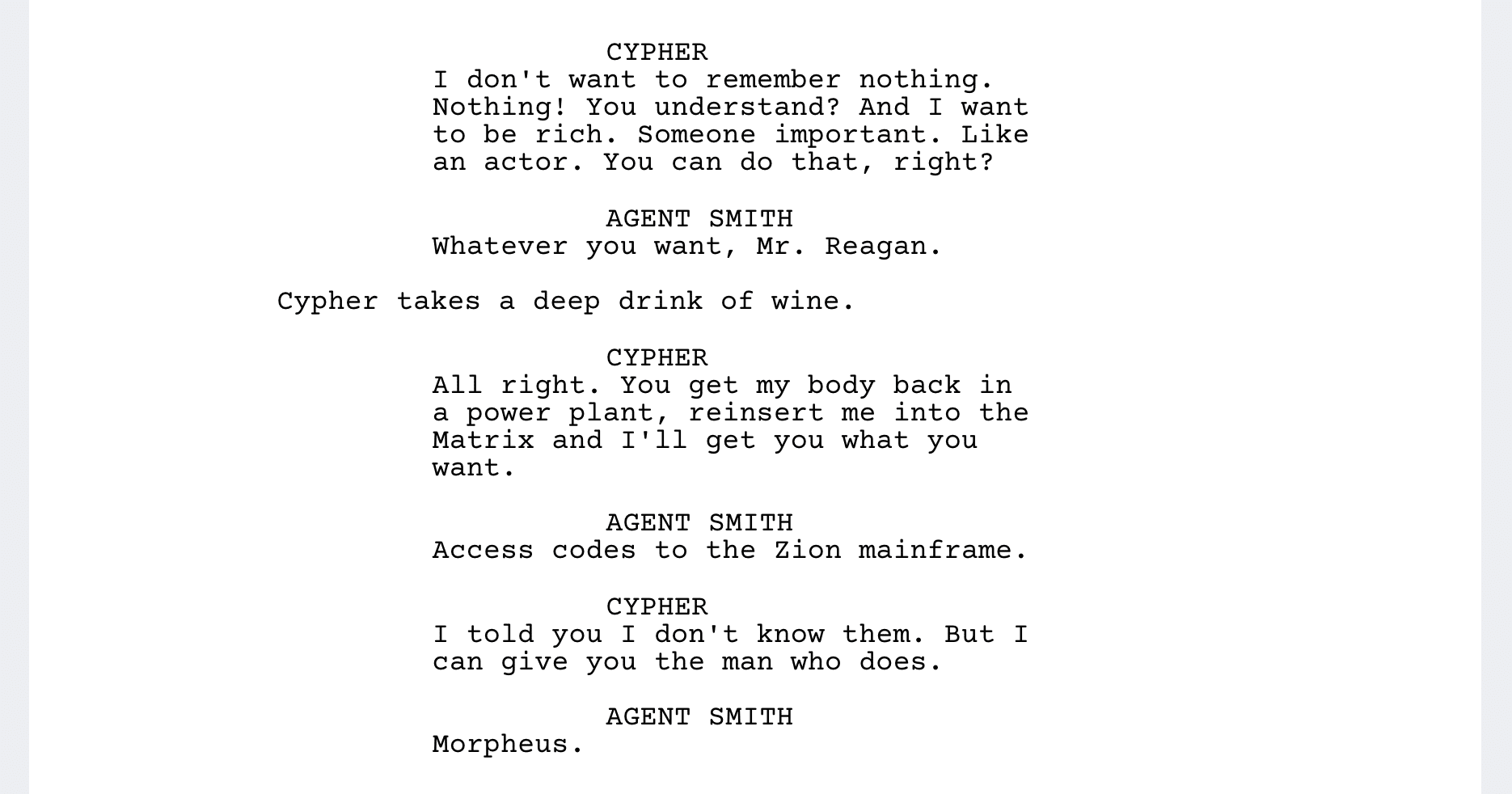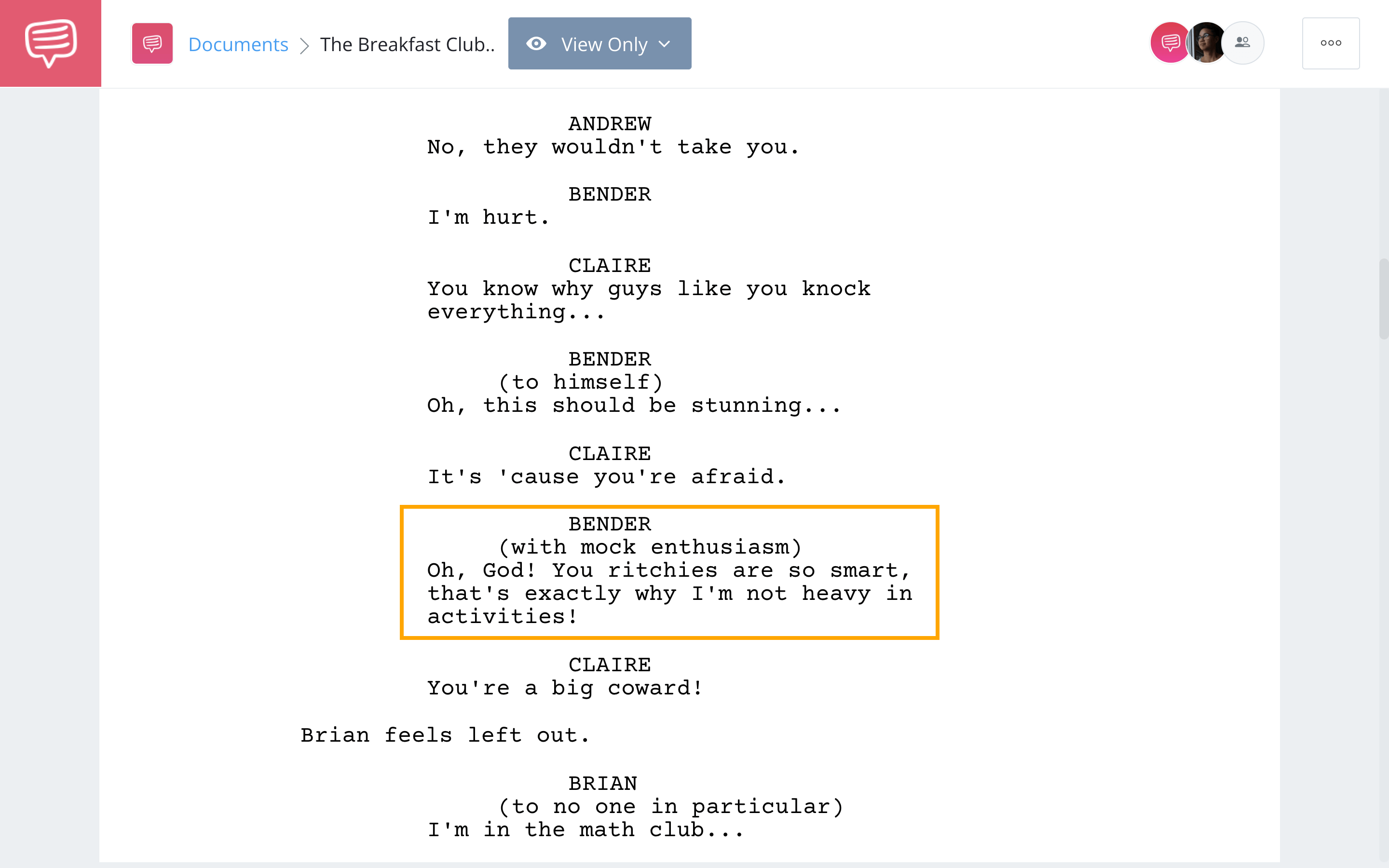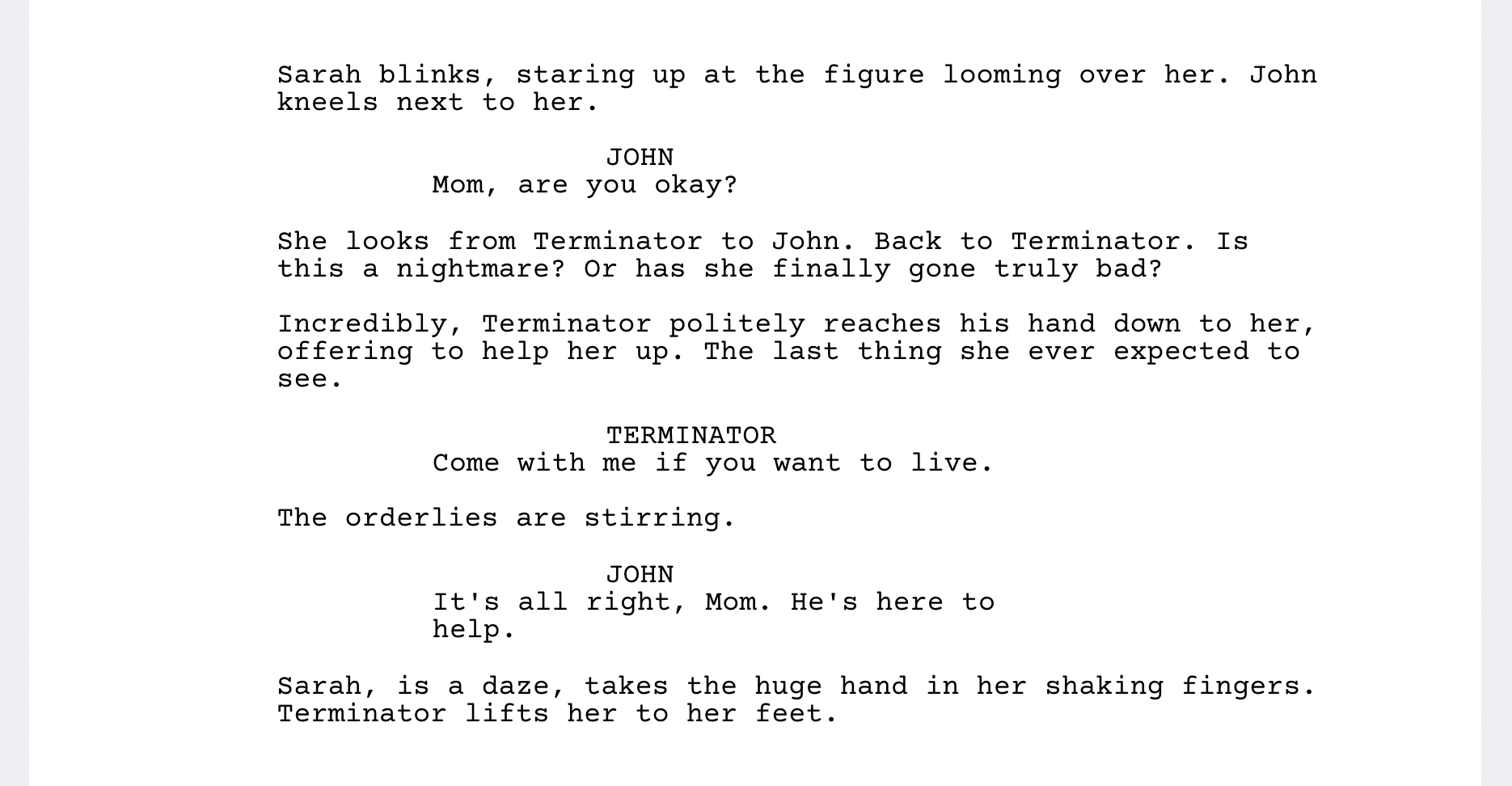We encounter irony every day: in our favorite movies, TV shows, and in our own lives. Most people have a general understanding of irony but there are also a lot of misconceptions about it. For example, were you aware that there are 3 different types of irony?
In this article, we’re going to define irony in all its variations. Whether you’re writing a short story or a screenplay, irony can be a powerful storytelling tool. You’ll be able to recognize the different types of irony and understand how they work. The next step is to carry this understanding straight into your next writing project.
Irony Meaning
What is Irony in a Story?
Irony is fundamental in storytelling.
Irony is the opposite of expectation. When what we expect to happen doesn’t happen, it creates conflict.
If we know the truth about a dangerous situation and we watch someone else get close to that danger, it creates suspense.
When someone says one thing but means another, it creates complexity.
All of these elements (conflict, suspense, complexity) are fundamental building blocks in storytelling. You don’t need to be an expert on irony to be a good storyteller. But it sure helps. Let’s define irony before we move on to the various types of irony.
Irony Definition
What is irony?
Irony is a literary device in which the reality is opposite of what we expect. The key here is "opposite," not just different. This incongruity can be found in language (what we say vs. what we mean) or circumstances (what we expect to happen vs. what actually happens).
Irony can be sad and tragic, or it can funny and satirical. In other words, there are limitless ways you can wield irony in your stories.
There are basically three types of irony: dramatic, situational, and verbal.
Each has a different definition and function in storytelling.
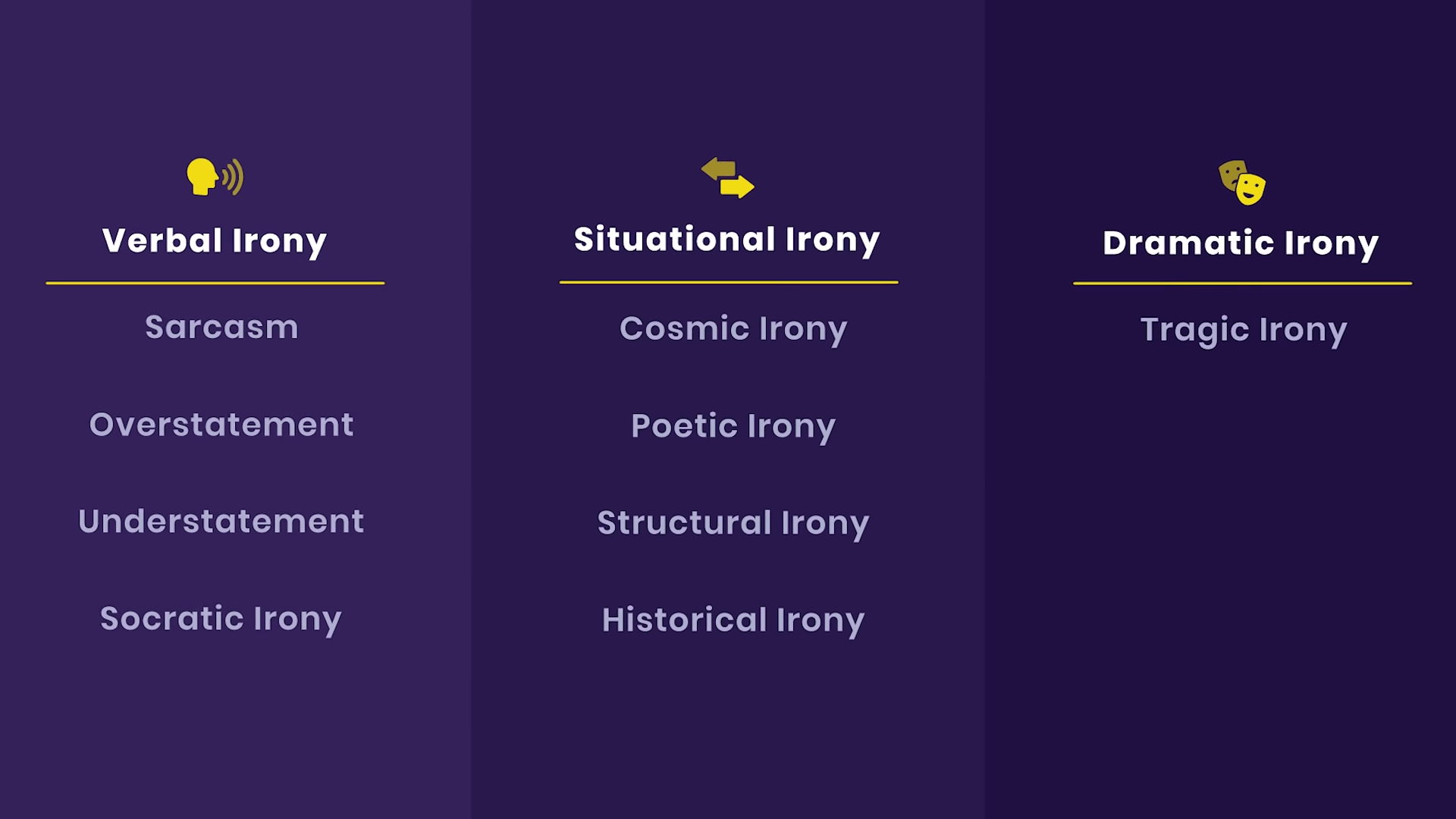
Types of Irony Explained
Let’s move on to some quick definitions of these main types along with a few subtypes or irony that provide even more complexity and depth to ironic storytelling.
DIFFERENT TYPES OF IRONY: DRAMATIC
What is dramatic irony?
Dramatic irony is when we have more information about the circumstances than a character.
Ex. When you know there's a killer shark in the ocean but the carefree beach goers have no idea they're being hunted.
That is dramatic irony.
Dramatic Irony Example: Romeo and Juliet
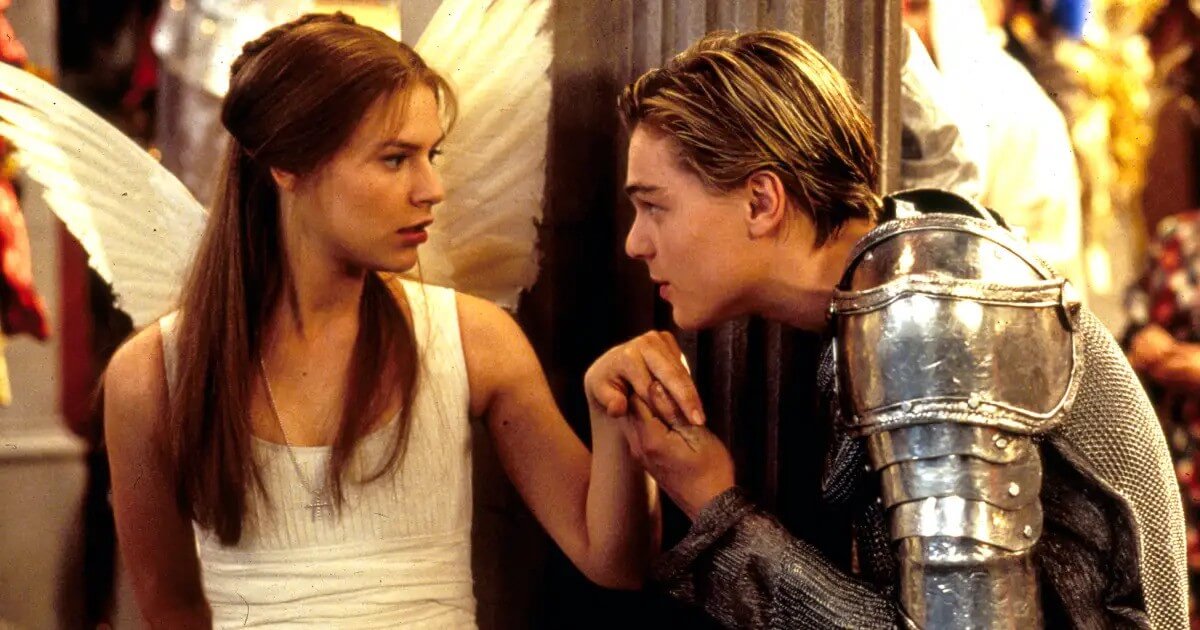
Shakespeare’s tragedy has one of the most famous examples of dramatic irony in the history of storytelling. It is crucial to the end of the play. Juliet takes a serum to appear as though she has died, and when Romeo enters, he thinks she has actually passed.
The audience, however, knows the truth, which makes the tragedy all the more heartbreaking. Romeo ends his own life, and when Juliet finally wakes, she does the same. The audience is tortured by knowing how avoidable this all was.
Dramatic Irony Example: The Odyssey
At one point in Homer’s epic, Odysseus returns home disguised as a beggar. The audience knows that he’s disguised himself, but Odysseus’s wife does not. This creates tension and suspense as we wait for their actual reunion.
Dramatic Irony Example: The Matrix
SPOILER ALERT for The Matrix. Neo and his crew are betrayed by one of their own. If we had learned of this at the moment of betrayal, we certainly would have been shocked.
But because we learn about it before any of the other characters, we have a nice, juicy piece of dramatic irony.
Here's the scene as it was written in the screenplay. Follow the image link to read the entire scene using StudioBinder's screenwriting software.
Read the full scene here
So, as with any dramatic irony example, the question becomes why do you let the audience know the truth before the characters do? Wouldn't it be shocking to see Cypher betray his people? We would be just as confused and panicked as Neo and the others.
VERBAL IRONY DEFINITION
What is verbal irony?
Verbal irony is when someone says something, but means the opposite.
Ex. When you get an "F" on your term paper and say, "Wow, I did a really good job on my term paper!"
That is verbal irony.
Verbal Irony Example: Pride and Prejudice
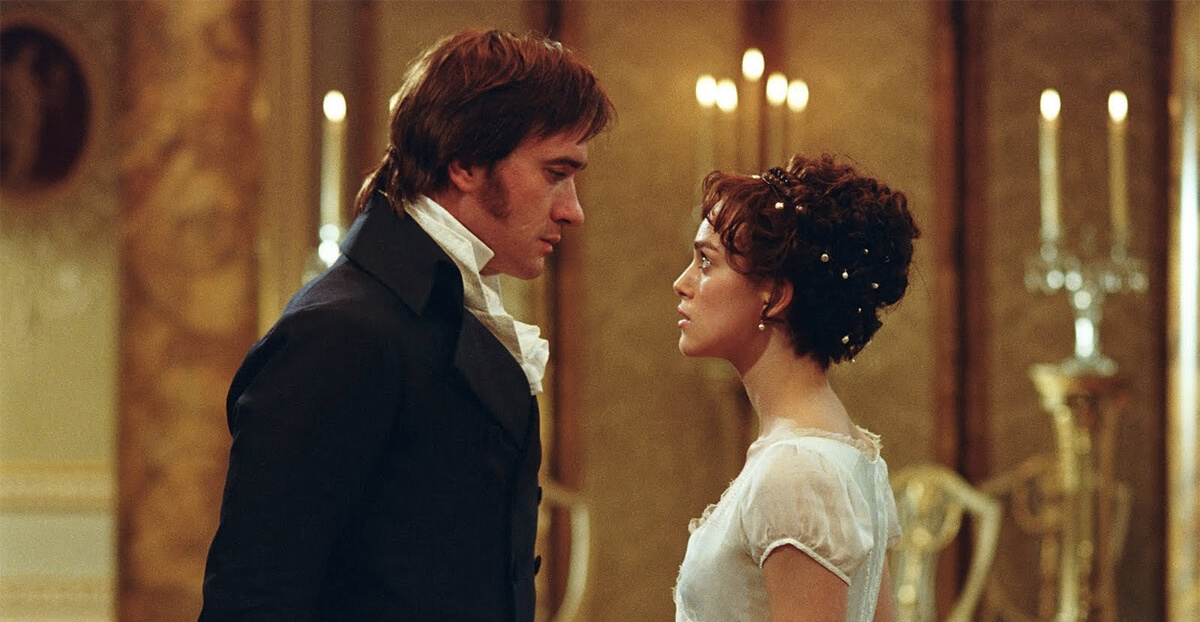
Jane Austen’s Pride and Prejudice is filled with different types of irony. Lots of the witty dialogue throughout the novel employs its verbal form, like this line from Mr. Bennet to his wife:
- “You are as handsome as any of them, Mrs. Bennet, and Mr. Bingley might like you the best of the party.”
Here, Bennet is mocking his wife’s obsession with marrying off their daughters. His statement is ironic since he knows Mrs. Bennet is not as “handsome” as their offspring, and Mr. Bingley will not in fact be choosing her.
Verbal Irony Example: Othello
Another Shakespeare classic, another example of irony. The traitorous Iago at one point tells Othello,
- “My lord, you know I love you.”
In fact, the opposite is the truth, and Iago is plotting Othello’s downfall.
Verbal Irony Example: The Breakfast Club
In The Breakfast Club, Bender (Judd Nelson) is known for his sharp tongue. He is constantly providing quips, insults, jokes, mockery and, of course, verbal irony.
Here's one of his witty lines straight from the screenplay. His line, "Oh, God! You ritchies are so smart, that's exactly why I'm not heavy in activities!" is a great example of verbal irony.
Again, we are clued into his irony mostly through his delivery and performance, leaving no doubt that he doesn't mean what he says.
Follow the image link to read the entire scene in StudioBinder.
Read the full scene here
Within this verbal irony general definition, there are 4 types of verbal irony:
Each one brings a particular element so understanding which one to use and for what purpose is essential.
SITUATIONAL IRONY DEFINITION
What is situational irony?
Situational irony is when we expect one thing, but get the opposite.
Ex. To avoid rain on your wedding day, you choose a desert that hasn't seen rain in 100 years...and then it starts raining.
That is situational irony.
Situational irony example: Animal Farm
George Orwell’s iconic novel employs situational irony to sharpen its satire. Once the animals overthrow the human farmer, they expect to now live in a free and equal society. Instead, they end up under the dictatorship of the pigs. This situational irony hits on Orwell’s thesis, that power corrupts all.
Situational irony example: The Necklace
In this short story by French writer Guy de Maupassant, a woman buys an expensive necklace to appear wealthy, only to lose it and have to spend years paying off the debt. It’s situational irony in a nutshell: she expects to appear rich, but instead falls into poverty. The twist ending only highlights the irony– the necklace was in fact a fake.
Situational irony example: Terminator 2
A really great example of situational irony comes in Terminator 2: Judgment Day. Sarah Connor is attempting to break out of a mental institution when she encounters the same Terminator that was out to kill her in the first film.
The irony here — this time, the Terminator is there to protect her.
Not only is this a great example of situational irony, it's also a clever and intriguing way to make a sequel. James Cameron knew that he couldn't just have the same killer robot chasing the same people a second time. That's just one reason why T2 is one of the best sequels ever made.
Here's the scene as it was written in the screenplay. Follow the image link to read the entire scene in StudioBinder.
Read the full scene here
Within this general definition, there are 4 subtypes of situational irony:
BENEFITS OF USING IRONY
Why use irony?
Irony is born when “what seems to be” is different from “what is.” This contrast between expectation and reality is what makes irony such a rich device to use in storytelling.
Irony adds a layer of complexity and richness to the conflict. Now there is depth to your story that might not have been there before.
Writers use conflict to tell stories and irony to make better stories.
For a complete guide to irony, download our FREE ebook covering the types of irony, examples, and how writers wield it.
Free downloadable bonus
FREE Download
Ultimate Guide to Irony
Irony is an essential literary device that all writers should master. Download our FREE e-book to get in-depth explanations and examples on topics like the major types and sub-types of irony, and the myriad of ways writers can use it to enrich their storytelling.
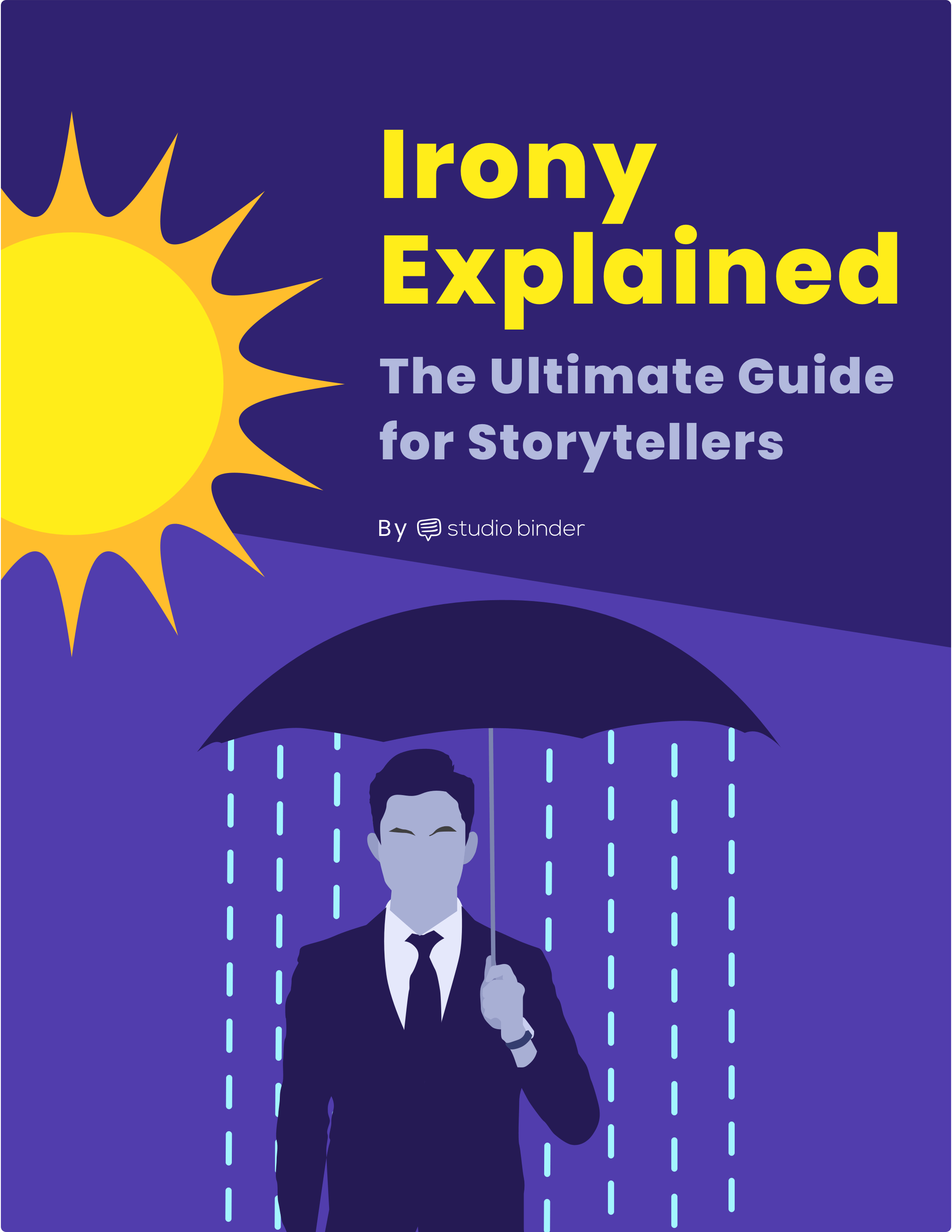
UP NEXT
Dive deeper into irony
We've covered the basics on the 3 types of irony but there is so much more to learn. If there is a particular form of irony you want to explore further, just follow the navigation below. Each one of these subtypes of irony belongs in every writer's toolkit.
Types of Irony
Read a summary of the various types of irony, or dive into the specifics below.

